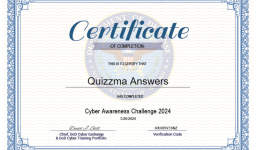- 9th Grade
Source: I, Too by Langston Hughes
Assessment Questions Answers
| Question | Answer |
|---|---|
| PART A: Which statement best describes a main theme of the poem? | Racial prejudice is disgraceful and will dissolve in favor of equality. |
| PART B: Which detail from the poem best supports the answer to Part A? | “They’ll see how beautiful I am / And be ashamed – / I, too, am America.” (Lines 16-18) |
| How is the detail of the speaker being asked to eat in the kitchen important to the theme? | It emphasizes the unfair treatment the speaker receives. |
| How is the speaker affected when he is asked to eat in the kitchen? | The speaker is confident that things will change for the better. |
How does the poet’s word choice contribute to the hopeful tone of the poem?
The poet’s word choice contributes to the hopeful tone of the poem through several key elements:
- Positive and Resilient Language: Words like “laugh,” “eat well,” and “grow strong” (Lines 5-7) convey resilience and an unbroken spirit in the face of adversity. This choice of words suggests not only survival but thriving despite the challenges faced.
- Future Tense: The use of future tense in phrases like “Tomorrow, / I’ll be at the table” (Lines 8-9) and “Nobody’ll dare / Say to me, / ‘Eat in the kitchen,’” (Lines 11-13) expresses certainty and optimism about the future. This forward-looking perspective infuses the poem with a sense of hope that change is not only possible but inevitable.
- Inclusive Language: The repetition of “I, too, am America” (Lines 1 and 18) emphasizes inclusion and a claim to belonging. This statement asserts the speaker’s rightful place in the nation, challenging the exclusionary practices of the time and asserting a shared identity that encompasses all Americans, regardless of race.
- Imagery of Beauty and Shame: The words “They’ll see how beautiful I am / And be ashamed” (Lines 16-17) suggest a transformative recognition of value and humanity that will lead to a moral reckoning for those who have perpetuated discrimination. The contrast between “beautiful” and “ashamed” highlights the moral clarity and the anticipated shift in societal attitudes.
These word choices collectively craft a narrative arc from exclusion to inclusion, from being marginalized to being recognized, and from a present filled with discrimination to a hopeful, equitable future.
Hughes masterfully uses language to convey not just the experience of racial prejudice but also the unwavering optimism that it will be overcome.
Discussion Answers
In the poem, the speaker shows how he is not treated equally in America because of his skin color. How does he respond to this discriminatory treatment? Describe a time when you felt treated unfairly because of your identity. How did you respond?
In the poem, the speaker responds to discriminatory treatment with resilience and optimism. Even though he’s sent to eat in the kitchen away from everyone else, he doesn’t let it break his spirit.
Instead, he laughs, eats well, and grows strong. He’s confident that things will change and believes that one day he’ll be sitting at the table with everyone else, and no one will dare to treat him unfairly again.
He imagines a future where his beauty and worth are recognized, and those who discriminated against him will feel ashamed. His response is all about hope and the belief in a better future where he’s treated as an equal part of America.
If you’ve ever felt treated unfairly because of your identity, it’s important to remember the resilience and hope shown by the speaker in Hughes’ poem.
Facing unfair treatment with strength and optimism, like the speaker, can lead to personal growth and contribute to broader social change.
In the poem, the speaker expresses confidence about the equal treatment he will have tomorrow. Do you think Langston Hughes would be happy with the state of America today? Why or why not? What do you think he’d want to see change?
Langston Hughes, with his hope for equality and his fight against racial discrimination, might have mixed feelings about America today. On one hand, we’ve made a lot of progress since Hughes wrote “I, Too.” There are laws that protect people’s rights regardless of their race, and we’ve seen people of all backgrounds achieve amazing things, from politics and science to art and sports. So, in some ways, Hughes might be happy to see how far we’ve come toward the equality he dreamed of.
But on the other hand, there are still a lot of problems. People still face discrimination because of their race, and there are big gaps in things like education, health, and wealth between different groups of people. There are also lots of protests and movements like Black Lives Matter that show we still have a long way to go to make Hughes’ dream of equality a reality for everyone.
I think Hughes would want to see even more change. He’d probably want everyone to keep working towards a world where no one is treated unfairly because of their race or background. He’d likely want to see more understanding and respect between different kinds of people and for America to really live up to its promise of equality and freedom for all.
So, while we’ve made progress, Hughes would probably remind us that there’s still work to do and that it’s up to everyone to make his dream of a fair and equal America come true.
In the final line of the poem, the speaker states, “I, too, am America.” What does it mean to be American? Throughout history, how has America attempted to exclude certain groups of people? Do you think that America is more inclusive of various groups of people today? Why or why not?
When the speaker says, “I, too, am America,” it’s like he’s saying that being American isn’t just about the color of your skin or where you come from. It’s about being part of the country and its story, no matter what. Being American means sharing in the country’s freedoms, rights, and dreams, but it also means facing its challenges and working to make it a better place for everyone.
Throughout history, America has tried to exclude lots of different people. For example, Native Americans were forced off their land, African Americans were enslaved and then faced segregation and discrimination, and immigrants from all over the world were often treated poorly and like they didn’t belong. Women and LGBTQ+ people have also had to fight for their rights and to be seen as equals.
Today, America is working to be more inclusive, but it’s kind of a mixed bag. On one hand, we’ve got laws that protect people’s rights no matter their race, gender, or who they love, and we see more diversity in places like movies, TV, and government than ever before. But on the other hand, there’s still a lot of hate and discrimination. People are still fighting for their rights and for recognition, and sometimes it feels like for every step forward, we take a step back.
So, yes, America is more inclusive in some ways, but there’s still a long way to go. Being really inclusive means not just letting everyone in but making sure everyone is treated fairly and has the same chances to succeed and be happy. It’s like what Langston Hughes was talking about—everyone deserves a seat at the table, and we’ve got to keep working until everyone really feels like they belong.
Other Commonlit Answers
- Why It Matters That Teens Are Reading Less Commonlit Answers
- To My Dear And Loving Husband Commonlit Answers
- Adolescence And The Teenage Crush Commonlit Answers
- Total Control In North Korea
- Was It A Dream?
- Story Of An Hour
- The Necklace
- The Most Dangerous Game
- The Lottery
- Conformity
- The Life of Julius Caesar
- On Tragedy Commonlit Answers
- A Child Of Slavery Who Taught A Generation Commonlit Answers




Leave a comment